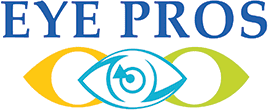How to Spot Early Signs of Vision Problems in Kids Around Layton

When it comes to your child’s development, clear vision is just as important as healthy teeth or regular growth milestones. Yet many parents in Layton don’t realize that vision problems can go unnoticed for months—or even years—if not checked early. Kids often assume the way they see the world is normal, even if they’re struggling to focus on schoolwork, sports, or daily activities. At Eye Pros in Layton, our experienced eye doctors know that early detection of vision issues is critical for a child’s success, both inside and outside the classroom. By recognizing the early signs and scheduling routine pediatric eye exams, you can help ensure your child builds the strong visual foundation they need to thrive. Let’s dive into how to spot the subtle clues that your child may need an eye exam—and why early intervention makes all the difference. Why Early Detection of Vision Problems Matters Your child’s eyes are constantly developing—and good vision plays a critical role in how they learn, grow, and interact with the world. When vision problems go undetected, it’s not just about needing glasses; it can affect everything from reading skills to classroom confidence and even behavior. Why Early Detection of Vision Problems Matters Academic Success Around 80% of a child’s learning is visual. If your child can’t clearly see the board, books, or digital screens, they may struggle with reading comprehension, math performance, and attention span. Social Development Vision affects hand-eye coordination, facial recognition, and non-verbal communication. Difficulty seeing clearly can lead to shyness, frustration, or avoiding group activities. Preventing Worsening Problems Conditions like lazy eye (amblyopia) and crossed eyes (strabismus) are far easier to treat when caught early. Without intervention, these issues can become permanent. Boosting Confidence and Comfort Children with undiagnosed vision problems often feel frustrated without knowing why. Clear vision improves not just their academic work, but also their self-esteem and emotional well-being. At Eye Pros in Layton, our team of dedicated eye doctors specializes in pediatric eye care to catch small issues before they turn into big ones—setting your child up for success at every stage. Common Early Warning Signs of Vision Problems in Kids Kids rarely tell you when they can’t see well because they often don’t realize their vision is any different from others. That’s why it’s important for parents to watch for the subtle signs that something might not be right. Signs It’s Time to Visit an Eye Doctor in Layton Squinting or Closing One Eye If your child squints often or covers one eye when reading or watching TV, it could indicate a refractive error like nearsightedness, farsightedness, or astigmatism. Frequent Headaches or Eye Rubbing Constant eye strain can cause headaches, especially after reading, using digital devices, or doing homework. Eye rubbing may also signal visual fatigue. Sitting Too Close to Screens or Books Children with blurry distance vision often move closer to what they’re trying to see. Watch for signs like sitting right in front of the TV or holding books very close. Difficulty Concentrating on Schoolwork Struggling with reading, avoiding detailed tasks like puzzles, or losing interest in homework can all be connected to undetected vision problems. Poor Hand-Eye Coordination Struggling with reading, avoiding detailed tasks like puzzles, or losing interest in homework can all be connected to undetected vision problems. Tilting or Turning the Head to See If your child frequently tilts or turns their head when looking at things, it could be a sign of an eye muscle imbalance. Spotting these signs early is crucial—and that’s why regular pediatric eye exams with an experienced eye doctor in Layton, like the team at Eye Pros, are so important for protecting your child’s long-term vision health. How Vision Problems Can Be Missed Without an Eye Exam It’s easy to assume that if your child isn’t complaining, their vision must be fine—but that’s not always the case. Many kids adapt to poor vision without realizing it’s not normal. Unlike adults, children often don’t know what “clear” vision should feel like, making it harder to spot issues without professional help. Why Skipping Eye Exams Can Miss Problems School Screenings Are Limited Most screenings check if a child can see the board from across the room. They often don’t assess important skills like depth perception, eye coordination, or near vision—critical for reading and writing. Children Often Don’t Complain Kids may not realize their vision isn’t normal because it’s the only way they’ve ever seen. Instead of mentioning blurred vision, they might just avoid reading, struggle in sports, or show frustration at school. Some Issues Are Subtle Conditions like astigmatism, focusing problems, and mild strabismus may not be obvious to parents or teachers—but they can seriously impact learning and development if untreated. At Eye Pros in Layton, our pediatric comprehensive eye exams go far beyond a simple vision check. Our experienced eye doctors carefully evaluate every aspect of your child’s eye health and visual function, ensuring that nothing gets missed. What to Expect During a Pediatric Eye Exam at Eye Pros Layton If your child has never had a full eye exam before, it’s normal to feel a little unsure about what to expect. At Eye Pros Layton, we make pediatric eye exams comfortable, interactive, and even fun—because good vision care starts with a positive experience. Here’s what happens during your child’s visit Friendly Welcome Our team knows how to help kids feel at ease from the moment they walk in. We explain every step of the exam in a way that’s simple and stress-free. Vision and Eye Health Testing Using age-appropriate charts, tools, and games, we test for nearsightedness, farsightedness, astigmatism, eye teaming, depth perception, and tracking skills. Eye Alignment and Focusing Evaluation We check how well your child’s eyes work together and how easily they can shift focus from near to far objects—both critical for school success. Comprehensive Health Screening Our experienced eye doctors look for early signs of conditions like lazy eye (amblyopia), crossed eyes (strabismus), or even more serious
